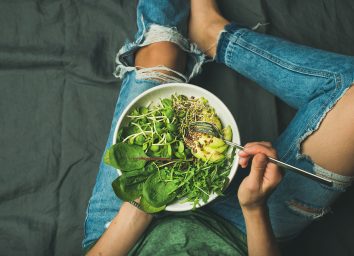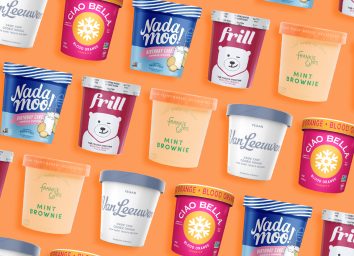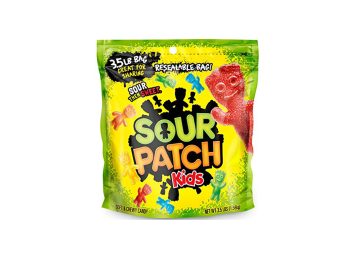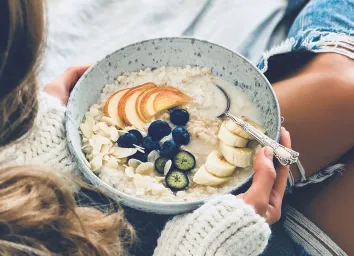To Go Vegan or Not to Go Vegan? A Complete Beginner's Guide to the Plant-Based Diet
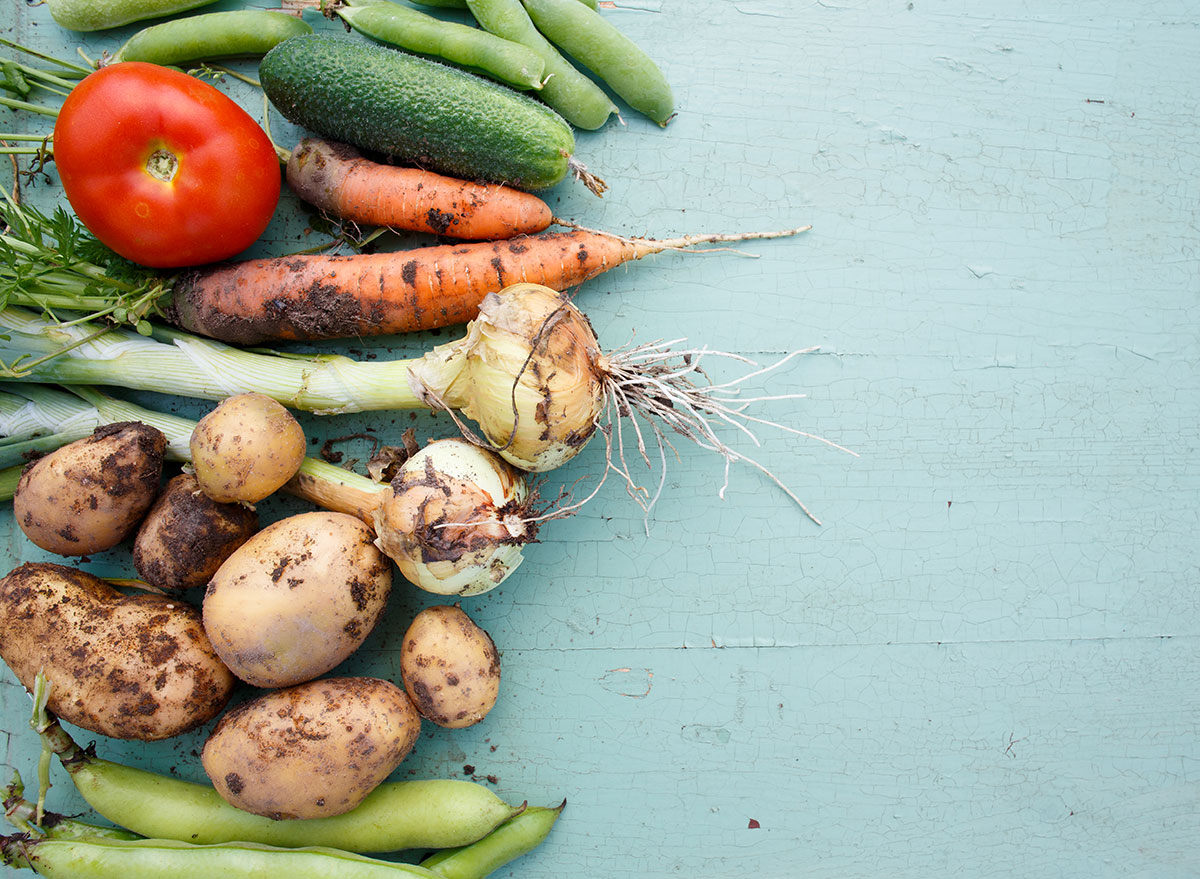
Everyone seems to be adopting a vegan diet right now, and for good reason. Study after study is showing just how much good giving up meat can do for human health. For example, one study published in the Journal of Nutrition earlier this year found that vegans had higher antioxidant levels than vegetarians and meat-eaters. And the vegan group also had lower saturated fat levels than their study counterparts.
Plus, it's becoming even more clear that ditching animal products is one of the most effective ways to save the planet (and trillions of animals in the process). But with the word being thrown around everywhere, you might be wondering: What exactly is a vegan diet in the first place?
Vegan Diet 101
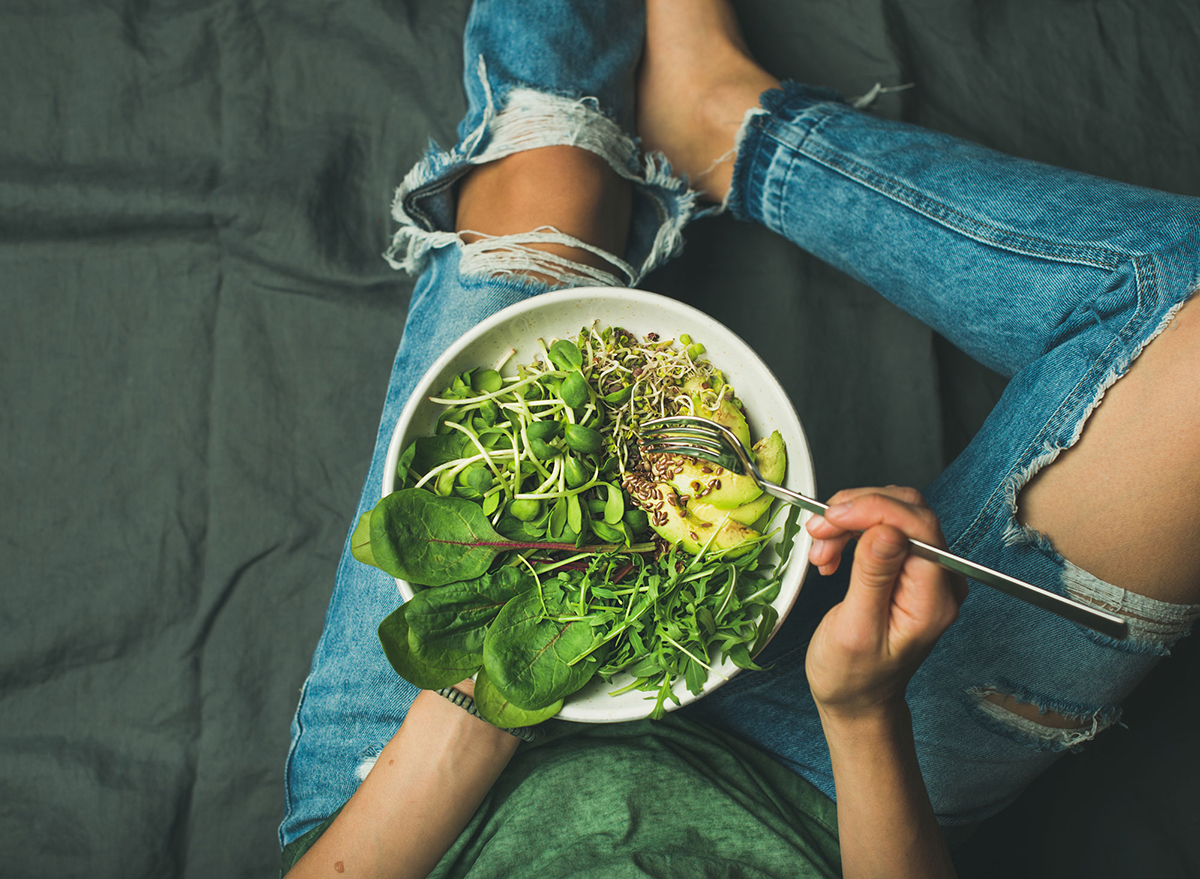
By definition, a vegan is someone who doesn't eat or use animal products. That means aside from the lifestyle aspect—which involves changes like no longer buying leather and products tested on animals—your diet will shift to include plants instead of animals.
What are the foods vegans can't eat?
Vegans don't eat any animal products or animal-derived ingredients. That includes:
- Meat
- Poultry
- Fish
- Seafood
- Dairy products
- Eggs
- Honey
Vegans also avoid many lesser-known animal-derived ingredients and additives, including gelatin, shellac, carmine, casein, whey, and more.
What foods do vegans eat?
A safe bet is to start with whole plant foods. That includes:
- Fruits
- Vegetables
- Beans and legumes
- Grains
- Nuts and seeds
- Tofu, tempeh, seitan
There are also vegan versions of all your favorite processed foods, including mock meat, ice cream, dairy-free cheese, yogurt, and more. In addition, many products are vegan by default, including most kinds of pasta and bread, nut butter, and many condiments.
What's the difference between plant-based and vegan?
Even though "plant-based" and "vegan" are often used interchangeably, there can be a big difference between the two. While the vegan diet strictly avoids all animal products, a plant-based diet either refers to the majority of your food coming from plants with no animal products, or to eating mostly plants with some animal products occasionally thrown into the mix.
Many people are both vegan and plant-based: They don't consume any animal products and mostly eat plants, avoiding many of the processed vegan junk foods available on store shelves.
What's the difference between vegan and raw vegan?
When you follow a raw vegan diet, you're still eating all the wholesome plant foods and avoiding animal products. Raw vegans stick to vegan foods that are whole, unprocessed, and uncooked (or not heated above 104 to 118 degrees Fahrenheit). Think lots of smoothies and big, veggie-loaded salads. And the reason? Raw foodists who follow the diet claim cooking food destroys the enzymes in food, causing it to lose its nutritional value. (This isn't entirely science-based—while some foods will lose nutritional value if, say, they're boiled, other veggies, like tomatoes, have increased nutrient content when you cook them.)
There's also the fact that only eating raw food can be very restrictive and—according to Andrew Weil, MD—causes you to "lose much of the best flavor, texture, and appearance of food." Not to mention, you'd miss out on some of the vitamins and minerals you get from cooked foods.
Why do people go vegan?
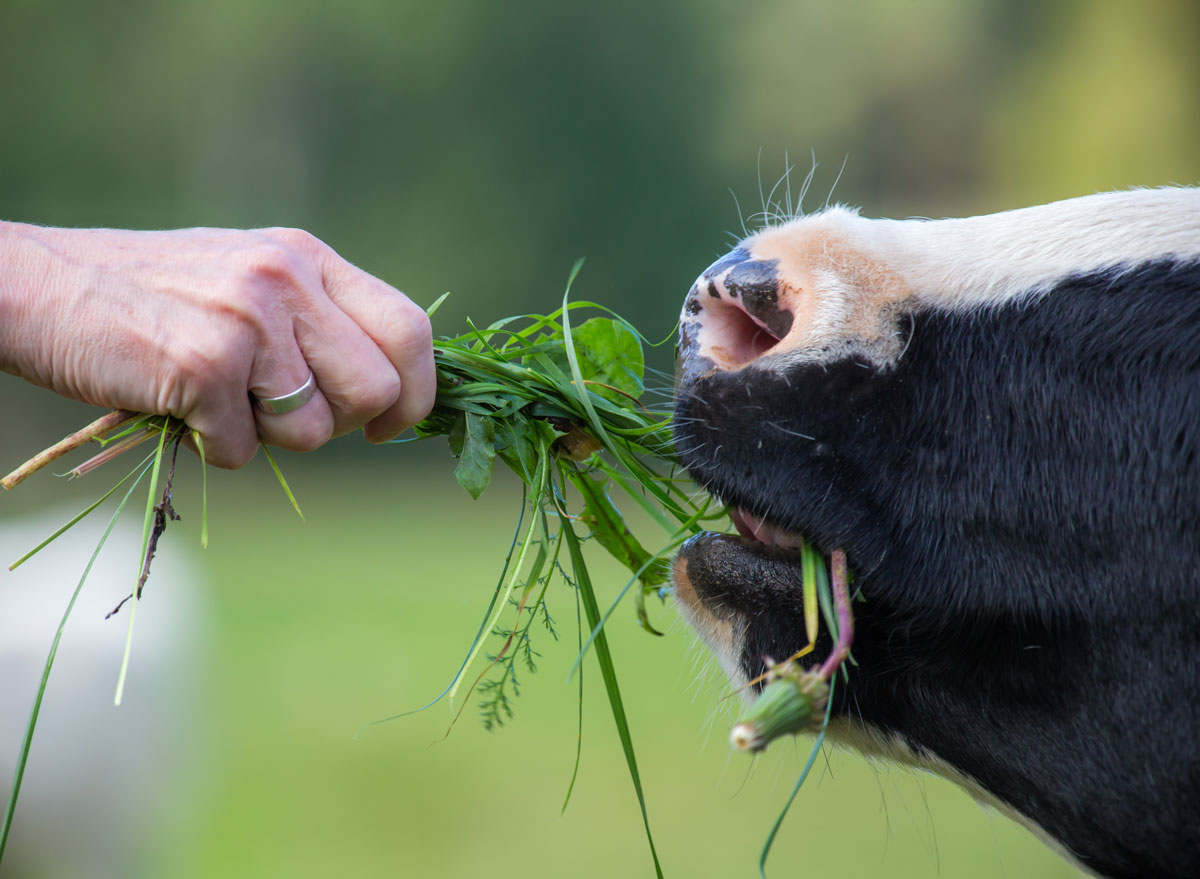
There are a few main reasons why people go vegan, but the most common is doing so for animals. Veganism involves not eating or using any animal products. Many people adopt the diet to help put an end to the harm and exploitation of animals for food, clothing, beauty products, and other purposes.
These animals—be it cows, pigs, chickens, and more—endure an unimaginable amount of pain and suffering, from being confined to dark, cramped areas for their entire lives to enduring the torture that takes place in the slaughterhouse during their last moments on Earth. It's reported that an estimated 75 billion land animals—and trillions of aquatic animals—are killed every year around the world for food, and vegans want to put an end to that.
Another reason why people might choose to go vegan is to better their health. According to Harvard Medical School, there's an ever-growing amount of evidence that shows eating a vegan diet can help you live a long, healthy life. It can help lower your risk of type 2 diabetes and heart disease, aid in weight loss, and even help prevent colon and breast cancer, to name a handful of the benefits.
It's not just your health that can be bettered by a vegan diet, either—it's also the health of the planet. In a report published earlier this year by The Lancet, 37 scientists from 16 different countries came up with the best diet for protecting both the health of people and the world: going plant-based and ditching meat. While plant-based foods—like tofu and beans—generate the least amount of greenhouse gas emissions that are contributing to global warming, animal products—like meat and cheese—generate the most. According to the Yale School of Forestry & Environmental Studies, cattle ranching is also responsible for the deforestation of the Amazon rainforest.
What are the benefits of being vegan?
As long as you're eating a healthy vegan diet—and not just loading up on junk food—it can totally change the way you feel, better your health, and even save you money.
"Benefits of veganism include increased consciousness surrounding food (you have to really go out of your way to plan, prepare, and select food!), a smaller carbon footprint, and not contributing to any kind of animal cruelty," says Monica Auslander Moreno, MS, RD, LD/N, nutrition consultant for RSP Nutrition. "There's also a tendency to eat more vegetables, fruits, nuts, seeds, and legumes, an increased likelihood of cooking at home, and potentially having improved lipid and blood sugar profiles."
Are there downsides to a vegan diet?
While protein isn't typically a problem when going vegan—despite what you hear all the time—there are some other things you should be aware of when making the switch.
If you're eating a well-rounded, healthy vegan diet, your risk of any nutritional deficiencies is low, as observed by The Permanente Journal in 2013. The American Academy of Nutrition and Dietetics says you can meet the majority of your nutritional needs through plant foods: There's plenty of calcium in foods like broccoli and almonds, iron in beans, omega-3 fatty acids in walnuts and flax seeds, and vitamin D in fortified orange juice and cereal. The one thing that can be tricky is getting enough B12, because it occurs naturally in animal foods. While you can find it in nutritional yeast and B12-fortified foods like soy milk, you can also take a supplement.
In the past, one of the biggest downsides to going vegan was the lack of options. But that's no longer the case, thanks to new plant-based options on the market. For instance, on those days you want to grab a burger, there's an endless amount of options at your fingertips: Both veggie-packed burgers and realistic mock meat options, like the Beyond Burger, are at nearly every grocery store. And now you can even order the Impossible Whopper, made with the Impossible Burger, at every Burger King location in the country.
How can you transition into a vegan diet?
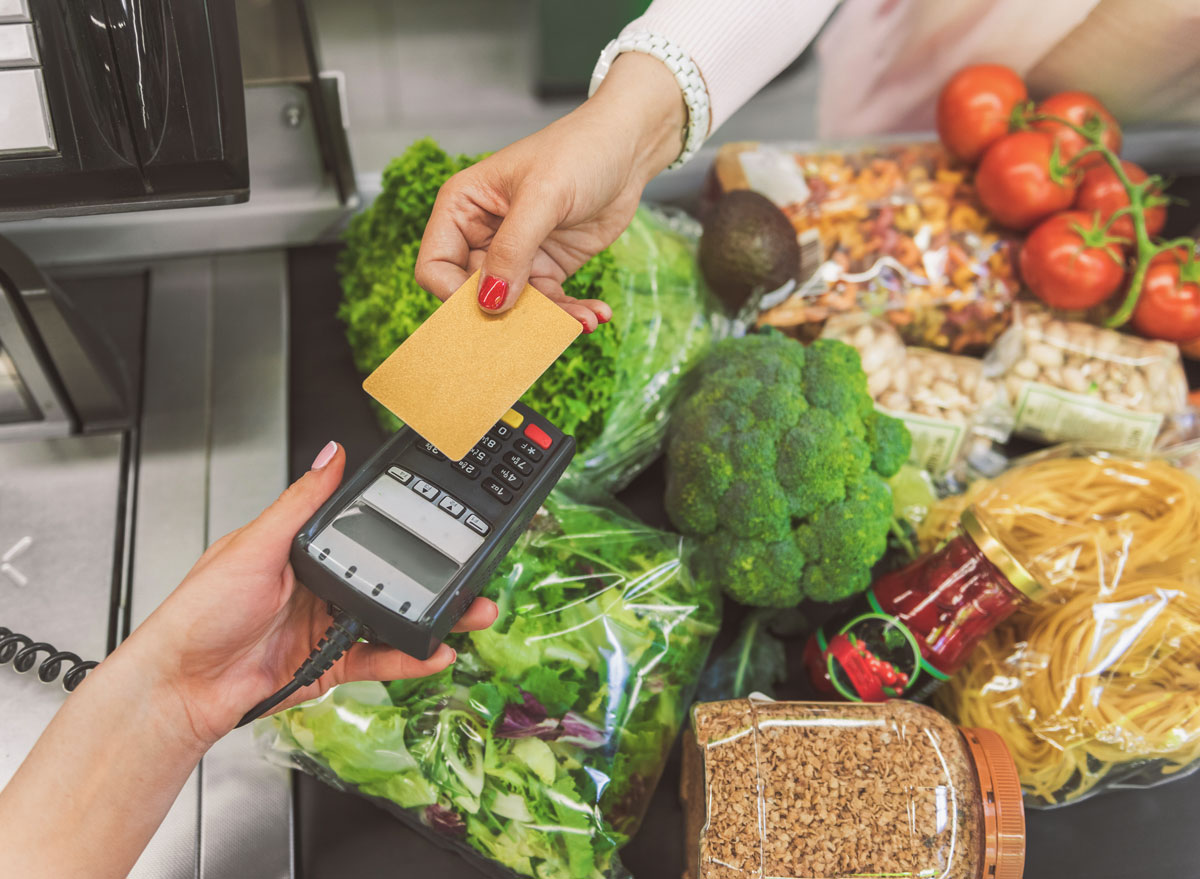
Going vegan might seem difficult at first. But with these easy tips, you'll have the healthy, world-changing diet down in no time.
Start slow
If you don't want to jump in all at once, you don't have to. Instead, you can start by eating vegan a couple of days a week, then build that up until you're fully vegan. One great way to do this is by making Meatless Mondays a thing in your home. You'll be feeling so great at the start of each week that you'll want to stick to plants all week long.
Experiment with plant protein
Instead of building your meals around meat, start subbing in different types of plant protein. Whether you're adding tofu onto your shish kebabs or putting tempeh in your stir-fry, get used to including more plant-based options in your diet.
"Experiment with meals based around plant proteins like tofu, tempeh, and beans," Moreno says. "Tofu and tempeh are complete proteins and are very versatile in the kitchen. And beans also nourish the microbiome with their prebiotic fiber profiles, as well as provide protein."
Reimagine your favorites
The next time you're craving one of your favorite dishes, get creative. Have some fun in the kitchen and figure out how to make a plant-based version of it.
"Try mushroom burgers made with beans, sweet potato, and quinoa," Moreno says. "Mushrooms are one of the only plant-based sources of Vitamin D."
Adopting a vegan diet can be overwhelming at first. But it can be worth the tricky adjustment period if you're serious about this lifestyle change. There are so many health benefits, as well as environmental ones—it's no wonder the vegan diet is becoming so popular.
